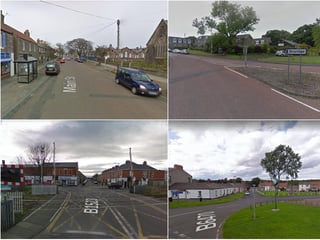Roving vaccine van and pop-up sites in Northumberland village halls considered in Covid fight
and live on Freeview channel 276
This proposal was mentioned by Rachel Mitcheson, from NHS Northumberland Clinical Commissioning Group (CCG), during her update to the Thursday, February 11, meeting of Northumberland County Council’s health and wellbeing board.
So far in the county, 70,000 people from the top four priority groups – care home residents and staff, the over 80s, the over 75s, the over 70s and clinically extremely vulnerable – have now been vaccinated and Northumberland is ‘absolutely on target’ to have offered the first dose to everyone in those categories by Monday, February 15, as set by the Government.
Advertisement
Hide AdAdvertisement
Hide AdThis has been supported by a large supply of 17,000 doses arriving this week.


All care home residents and staff have now been offered a vaccination, while Northumbria Healthcare NHS Foundation Trust has given first doses to 18,000 staff in the wider health and social system across Northumberland and North Tyneside.
And as preparations are being made for the roll-out of the second doses, which is likely to start in Northumberland around March 8, health bosses are also looking at setting up a roving mobile vaccination service for the county to enable pop-up sites to be put in place.
Ms Mitcheson said: “The vaccine could be taken out to rural communities, it would link in with the work on inequalities by going into some of our harder-to-reach communities.
Advertisement
Hide AdAdvertisement
Hide Ad“It would obviously increase capacity and would look to be doing about 1,000 doses every day, which would be really, really helpful.”
Despite the positives, it was again highlighted that this process will take some time for the full benefits to be felt.
It will take between four to six weeks before a significant reduction in hospital admissions and deaths is seen among the most elderly patients as a result of the vaccination programme.
Plus, it will take between four to six months before a significant reduction in community transmission is seen from the programme, as this requires around 70% to 80% of the population to be immunised.
Advertisement
Hide AdAdvertisement
Hide AdAt the current pace, the full roll-out will be completed by the end of November 2021 in November, with all nine of the priority groups finished by late spring.
